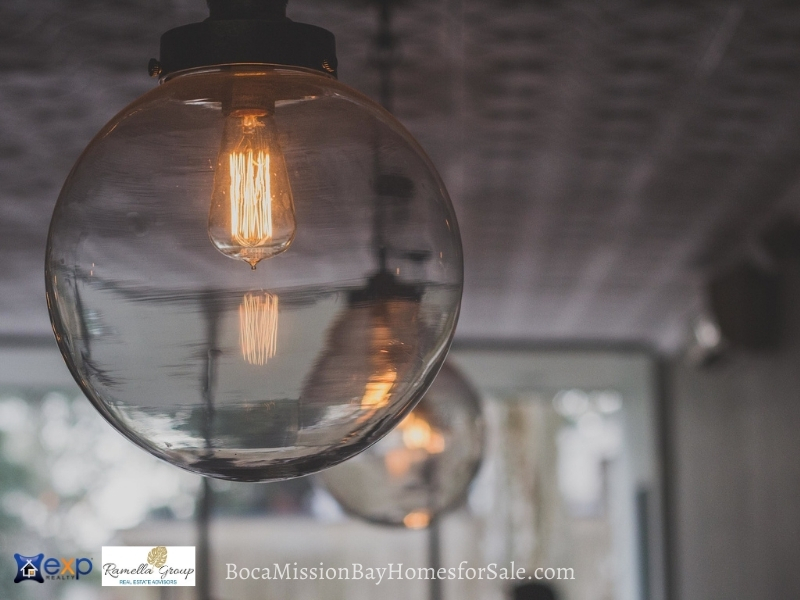What Happens If a Seller Leaves Something in the House in Mission Bay, Boca Raton, FL?
In a perfect Mission Bay, FL home sale scenario, the house is left clear for the buyer to move in. Sometimes, the opposite of perfect happens, though.
Knowing what happens to things left after a home’s turnover boils down to answering one question: is the item a fixture or a chattel? Most seller-leaving-stuff-after-home-turn-over situations are easy to solve. It’s as simple as determining which category the thing left behind falls in.
Some instances might be more complicated than this, though. And in case you experience such, this article will help you do the right thing, whether you are the buyer or the seller.
This article will discuss scenarios that may occur after a seller leaves their stuff behind. Read on for tips on how to deal with this.
Is it a fixture or a chattel?
The first step in deciding what to do with the seller’s stuff is to know whether it is a fixture or a chattel.
A fixture is a permanent part of the Mission Bay home you are selling or sold to you. It’s a real property that comes with the transfer of the house and lot. It is something whose ownership is transferred with the house and is not personal property.
If it’s a fixture, the buyer automatically becomes the owner of the item being settled. The generally accepted rule is that if somebody cannot remove it without damaging any to which it is attached, it is a fixture. Therefore, the buyer can do anything they want with the fixture left behind since it is now theirs. The new homeowner has all the rights to keep, sell, or dispose of the items.
Chattels, on the other hand, are movable properties. While it is easy to know who fixtures belong to, chattels are quite complicated. Chattels are not automatically owned by the seller just because they are the previous owners of the house. Some chattels might also be considered fixtures upon thorough checking.
We have listed three questions you may answer to help confirm which category does the item belong to:

- Is the item permanently affixed?
A chattel may not be a chattel if it is affixed to the home, and its removal may damage the property. For instance, a bedroom cabinet can be a fixture even though cabinets are usually movable. If it is glued to the flooring or walls, for example, and may create dents upon moving the item, it makes the chattel a fixture. In line with this, inserts that are glued, cemented, or attached to the cabinet are considered fixtures.
- Does the purchase contract say anything about it?
A purchase contract for a house contains more than its proposed price. Most, if not all, purchase agreements contain a clause that defines the items included in the sale. Unless otherwise stated by the contract, fixtures stay as fixtures and chattels remain chattels. Always stipulate in the contract what stays and what goes. That way, you can avoid issues with leftover items moving forward.
- Is the item hidden or buried?
There is usually a pre-closing inspection that happens before closing the deal. This is beneficial for both buyers and sellers. Buyers take this opportunity to ensure that the home is clean for them to move in. Meanwhile, the seller gets more time to ensure they have taken the last of their items out of the house. In some cases, previous owners unintentionally forget their things.
These things are usually the ones that are hidden or buried. The overriding rule is that the item is not immediately considered as abandoned to the buyer. The new owner of the house has no right to deal with it any way he likes. The buyer does not have the right to sell or dispose of the item. Instead, he must hold the item on behalf of the owner as a bailor. The buyer can contact the seller if they can deal with it amicably upon discovering such things.

What are the things I can and cannot do with the items left behind?
Distinguishing a fixture from a chattel is just the first step. The next relevant decision to make is what to do with the stuff left behind on the Mission Bay home.
- Fixtures. If it is a fixture, the item’s owner is the buyer, and thus, he can do anything he wants to do with it. He is free to use, sell, or junk the possessions left behind. What he can’t do is demand any compensation from the seller for any cost or inconvenience.
- Chattels. As mentioned in the initial part of the article, it might be a little more complicated for chattels. While a fixture is outright owned by the buyer most of the time, chattels’ ownership is not always given to the seller. We listed two usual scenarios that complicate what to do with chattels:
- The chattel belongs to a third party. Some homeowners do not live in the house they are selling. A lot of sellers may have had the place on rental before they decided to sell it. And sometimes, the tenants of these sellers may leave behind some items too. If this is the case, ownership of the object remains with that third party and the property. The buyer will become a bailor for the item on their behalf.
- The chattel is under finance, lease, or mortgage. If the item was under finance, then a solicitor can do a search before settlement to discover this. The finance company will have the right to repossess these things. This is stated initially in most financing contracts.
If the item’s owner is not a third party and it’s not under finance, it’s most likely owned by the seller. If this is the case, the buyer has no entitlement to sell, use, or throw away chattels without the owner’s authorization. The buyer should also ensure that the stuff left behind by the seller is not susceptible to theft or damage.

How can you avoid complications and inconveniences by items left behind in a home sale?
Bailment obligations make the stay in a new house less enjoyable for buyers. Getting their things back is a hassle for sellers. Going back to their old house after the buyer has moved in is considered trespassing. Worry not, because you can avoid complications such as these.
It will be beneficial for a home seller to inspect the Mission Bay home with a real estate agent. They are the best person to discuss what is and isn’t a fixture for clear understanding. In case you want to take something that you like upon moving out, you can replace it with standard ones. That is legal as long as it won’t hinder the house’s new owners from enjoying their stay in full.
You can note items that you consider fixtures and specify them in the purchase offer as a buyer. Does the house have appliances or light fixtures that you want to ensure remains after the sale? List them in the proposal.
Whether you are a buyer or a seller, it is best to state in the contract what goes and what stays. Doing so avoids complications in the future. Getting an expert to help you with the home buying or selling process is a smart move too.
If you’re looking forward to selling or buying a home in Mission Bay, Boca Raton, FL, call me, Kristi Ramella, at 561-206-2507.
In case you cannot view this video here, please click the link below to view What Happens If A Seller Leaves Something Behind in the House in Mission Bay, Boca Raton FL? on my YouTube channel: https://www.youtube.com/watch?v=ZHIdo2QkNRQ

